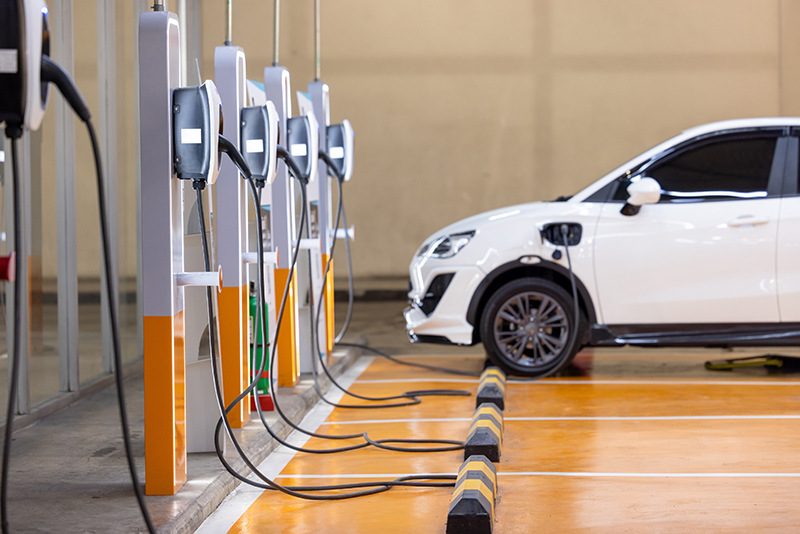

Electric vehicle (EV) sales are booming, and offering charging stations at your commercial property is a great way to attract customers, employees, and tenants. EV chargers can be installed anywhere there is access to electricity, however, there are several important factors to consider before installation. Consult a certified electrician to review the EV charger options available for your commercial property and help determine the best fit for your needs.

Location: When it comes to location, convenience is key, but so is practicality. Customers often prefer chargers near building entrances, but this might require longer power runs, increasing the cost and complexity of installation. For existing buildings, consider the location of your current power source and the path needed to run new lines to the chargers. With power sources usually on the side or back of a building, running a path to the front of the building could require temporarily uplifting landscaping and limiting access to entrance ways. For new buildings, include EV charger locations and installation within the initial scope of the project. It is more cost-effective and ensures the location of the chargers are user-friendly. Finally, factor in snow removal and how snow accumulation might affect charger placement and accessibility.
Electrical Capacity: Most commercial chargers require a 240-volt power source, unlike the standard 120-volt outlets used for home chargers. Whether it’s tapping into existing electrical lines or pulling new lines from the transformer, your electrician will need to determine whether the building and existing electrical infrastructure can support the additional load.
Charging Fees: Will you offer free charging or implement a pay-per-minute system? Payment options require specific chargers with network connectivity, adding complexity and cost to the installation.
Network Connectivity: Network connectivity allows features like charger listings on public maps and reservation scheduling for drivers. While some chargers use landline cables, others require a strong wireless signal, potentially limiting options in underground garages.
The Future is Electric, and We’re Here to Help.
Investing in EV charging stations positions your property for the future of transportation. With a team of trained EV specialists across New England, Interstate is your one-stop shop for EV charging solutions. We’ll guide you through every step from choosing the optimal location through installation.
Are you ready to charge up your commercial property? Contact Interstate today. www.iesc1.com
John Henry is a project manager and Roger Farwell is a project manager/estimator at Interstate Electrical Services, North Billerica, Mass.
.png)






